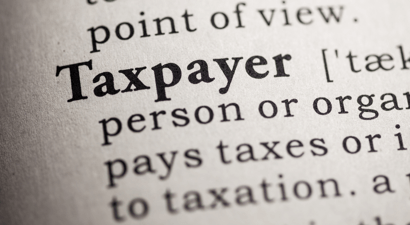When SARS Must Provide Grounds for an Assessment
By The Tax Team
In the case of Nondabula v Commissioner: SARS and Another (4062/2016) [2017] ZAECMHC 21 (27 June 2017), the taxpayer is a sole proprietor of a fuel service station and it is in respect of this business that this tax dispute has arisen. The issue arose when SARS issued the taxpayer with an additional assessment on 1 March 2016, which provided that the taxpayer had an outstanding tax liability of R1 240 455,94 for the 2014 tax year. SARS at no stage attempted to justify the amount claimed in the additional assessment.
The taxpayer objected to this additional assessment on 4 April 2016, however SARS did not substantively respond to the taxpayer’s objection but instead merely disallowed the taxpayer’s objection in a response dated 5 May 2016. On 11 May 2016, SARS issued a final demand, in terms of which the taxpayer was required to settle its outstanding tax liability within 10 days. On 3 June 2016, the taxpayer lodged a further objection to the additional assessment, which was never substantially responded to.
At this stage in the dispute, the taxpayer brought an application to interdict SARS from invoking section 179 of the Tax Administration Act 28 of 2011 (“the Act) and proceeding with the collection of the tax liability, pending the final determination of the taxpayer’s objection to the additional assessment.
Court
The court emphasised the fact that SARS is a creature of statute and as such must operate within the statutory provisions that empower it.
SARS appeared to have relied on section 92 of the Act for issuing the additional assessment. Section 92 provides that “if at any time SARS is satisfied that an assessment does not reflect the correct application of a tax Act to the prejudice of SARS or the fiscus, SARS must make an additional assessment to correct the prejudice.”
Before SARS can act in terms of Section 92 of the Act, however, SARS must first comply with section 95 of the Act, which provides that “SARS may make an [...] additional [...] assessment based in whole or part on an estimate if the taxpayer [...] submits a return or information that is incorrect or inadequate.”
SARS submitted that the additional assessment was prompted by the fact that the taxpayer had declared interest income of nil, which did not match the interest income amount of R32 734 that had accrued to the taxpayer’s bank account.
The court held that it is clear, based on this submission, that SARS was authorised by section 95 of the Act to do an additional assessment.
The court went on to provide that, when SARS issued the additional assessment in terms of section 92 of the Act, it was required to comply with section 96 of the Act. This section provides that SARS must issue a notice of the assessment to the assessed taxpayer, stating inter alia (in the case of an assessment described in section 95 of an assessment that is not fully based on a return submitted by the taxpayer) a statement of the grounds for the assessment. In other words, SARS had a statutory duty to inform the taxpayer of the reason for the assessment.
The court held that SARS omitted to comply with section 96 because SARS did not give a statement to the taxpayer of the grounds for the assessment as required in terms of section 96. In omitting to provide the taxpayer with all the information prescribed in terms of section 96 of the Act, SARS acted unlawfully. The subsequent issuing of a Third-Party Notice in terms of section 179 of the Act was therefore unlawful due to SARS having disregarded the doctrine of legality.
Conclusion
Section 95 triggers section 92. Once section 92 is reached, SARS must adhere to the requirements under section 96 of the Act, which requires SARS to issue a notice of assessment to the taxpayer that includes particular information.
It must, however, be noted that the taxpayer could have prevented SARS from invoking section 179 of the Act by lodging a stay of proceedings with SARS, which is a far more cost-effective method of preventing SARS from proceeding with collections pending the final determination of the taxpayer’s objection.





